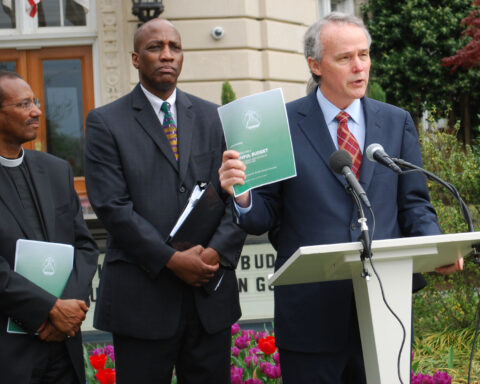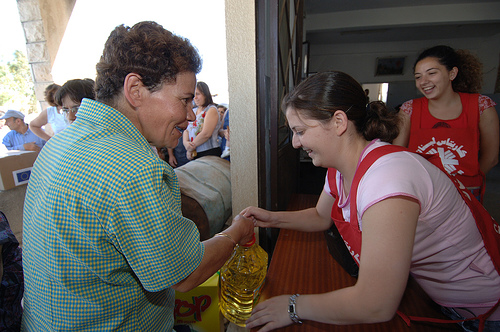[wpcol_1half id=”” class=”” style=””]
Covenant Economy: Implications
God’s purposes for the Hebrew people included land, “a land flowing with milk and honey.” As an agricultural society, land was the source of life and the means of livelihood. It was the foundation of all the goods necessary for survival and flourishing.
A covenantal sensibility controlled the people’s understanding of their relationship to the land, as well as their relationship to God and one another. First, as in the covenant, so with the land: the people of Israel acknowledged God’s ultimate sovereignty. The land did not belong to them, but to God: “The land shall not be sold in perpetuity, for the land is mine; with me you are but aliens and tenants” (Lv. 25:23). God’s ultimate possession of the land does not distinguish the Israelite economic system from the Egyptian Imperial order. In each, the sovereign was the true owner of the land and everyone else was a mere tenant. Like the covenant in general, the economic stipulations of the covenant recognized the absolute dependence of the people on God.
What distinguished Israel from the imperial societies that surrounded it was the second aspect of Israel’s covenantal understanding of the land. The land was divided equally among the people, each family in each tribe was provided with an inheritance (nahala), which was their sacred patrimony and the source of their economic security (Nm. 26:52-56). Every family had a piece of land that was handed down from generation to generation.
[/wpcol_1half] [wpcol_1half_end id=”” class=”” style=””]
In Egypt, a few powerful people controlled the means of production and the distribution of goods. The covenant, on the other hand, created an egalitarian and decentralized system in which families and clans maintained control over their own economic lives.
While the tribal league was highly decentralized, being a loose confederation of independent families and clans, it also had a strong culture of mutuality and interdependence. Hospitality and generosity were not simply admirable traits, but the law of the covenant. These peoples were bound to one another because they were all bound to God. Therefore, they were required, out of a proper sense of gratitude and humility, to treat one another as God had treated them. So, when the Israelites were harvesting their fields and gathering their crops, they were not to be meticulously efficient. Rather they should leave some produce in the fields for the alien, the orphan, and the widow (those without families and therefore without nahala). Why? Because they had been helpless and poor slaves in Egypt, and God had helped them! They should do the same for one another (Dt. 24:18-22). All wealth came from God and, ultimately, belonged to God. Property rights were not absolute, except in the case of God. God warns the people not to withhold support from those in need because “your neighbor might cry to the Lord against you, and you would incur guilt” (Dt 15: 7-11). A covenant economy, therefore, includes mutual interdependence in general and support for the less fortunate members of society in particular.
[/wpcol_1half_end]





Unbound Social